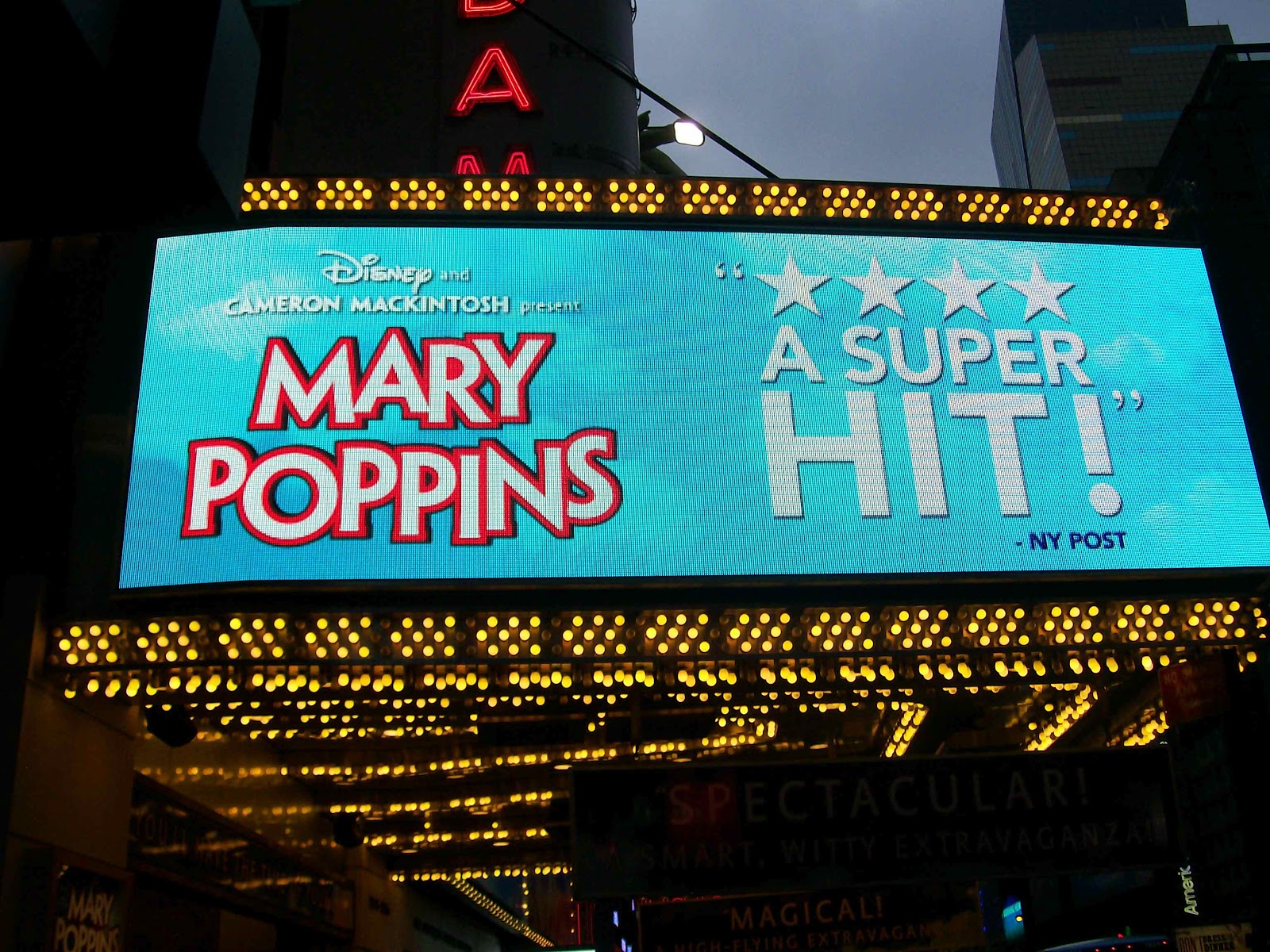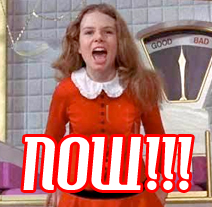Remember my post about my past journal entries? Here’s another old entry:
November 9, 2003
@2:58AM
I am sooooo happy right now, just on this absolutely incredible high. We went to see Les Miserables tonight @ the Colonial Theater and it was absolutely frickin amazing. I had pretty high expectations, and it was even better than everything I’d heard about it. Everything about it was incredible—the music, the direction, the story, the characters, and the guy who played Valjean was awesome. I was just so moved by the beauty of it I was crying. It has such a powerful message behind it, and it really made me believe that mankind is inherently good. And I really felt for the characters. Like Eponine when she sang “On My Own”—boy, can I relate to that right now.
Oh, it was sooooo beautiful it’s really beyond words…I can’t even think straight! 
Sure, I could make fun of myself and say I was being a silly nineteen-year-old fangirl thinking that Les Mis confirmed the goodness of mankind for me…but you know what? I still feel like that. (I’ll make fun of myself for spelling “so” with five o’s, though.) And you know how I promised you a post about how I came to be such a fan of Les Miserables and what I love about it? This is that post. It’s inspired by the recently-released teaser trailer for the movie:
[youtube http://www.youtube.com/watch?v=EnLSG5t_dc8] GAAAAAAHHHH!!!!! Now I’m even more excited! The reaction to Anne Hathaway’s singing has been mixed, but I like that she’s singing the song in character—it’s a very sad moment in the story, and singing it diva-style isn’t really appropriate. I think she brought a raw, emotional quality to the song, and I like it a lot.
But anyway, let’s talk about the musical. I know it might not be for everyone—it’s very serious and earnest, and there’s nothing the least bit cynical or ironic about it—but I love it, and here’s why.
I. THE PLOT
First of all, the plot, for those of you who aren’t familiar with it. You might want to skip this part because a.) it’s long and a lot of you might already know it (or might not want to read the whole thing), and b.) you might not want to be spoiled before the movie comes out.
Anyway, it takes place in nineteenth-century France. Jean Valjean has just been paroled after being a prisoner on the chain gang for nineteen years. He had been poor and starving and had stolen a loaf of bread for his sister’s family, and for that and numerous escape attempts it was nineteen years before he got out of prison. He’s given a yellow ticket of leave by the ruthless Inspector Javert, and it’s like his scarlet letter—he won’t be paid as much because he’s an ex-con. He’s become bitter and has turned into the kind of hardened thief that he never was before he was jailed, so when a kind bishop takes him into his home, he steals the bishop’s silverware. When he is caught and brought back to the bishop, the bishop surprises him by not only letting him have the silver, but giving him candlesticks as well. He warns Valjean that he must use the silver to turn away from his life of crime and become an honest man. Humbled, Valjean swears he will reform his life, and thus begins his redemption.
Years later, Valjean has assumed a new name and become the mayor of a town in France where he also runs a large factory. One of the factory workers is a young woman named Fantine, who has been abandoned by her young daughter’s father. Her daughter Cosette now lives with an innkeeper’s family, and Fantine sends the money she makes from the factory job to pay the family for her daughter’s care. When Fantine is fired for refusing the sexual advances of the foreman and getting into a fight with other women in the factory who discovered her secret child, she is forced to sell her hair and to become a prostitute. An altercation with a man draws the attention of both Inspector Javert and Valjean. The former wants Fantine arrested, but Valjean notices how sick Fantine is and demands that she receive a doctor’s care. Not long after, Javert notices Valjean’s strength when he saves a man trapped under a cart and comments that a prisoner who escaped parole years ago is the only other person he knows with that kind of strength. He tells Valjean that that man has been found and brought to court. Valjean is horrified that another man might be jailed for the crimes he committed, but also reluctant to abandon the factory workers who depend on him. After pondering his dilemma, he decides to go to court and persuade the court to release the accused man. He then escapes to Fantine’s deathbed, promising her that he will raise her child for her. As Fantine dies, he has another confrontation with Javert, but he escapes to find Cosette at the inn where she is staying.
Cosette, who is eight, has been living with the Thenardiers, who run an inn where they often cheat their guests and treat Cosette like a servant while spoiling their own young daughter, Eponine. When Valjean shows up, they agree to give him Cosette after he pays them a large sum of money. Valjean takes Cosette away to raise as his own daughter.
Nine years later, Paris is on the brink of an uprising (namely, the June Rebellion). Cosette has grown up in Valjean’s care and knows nothing about her past or her mother. A band of young revolutionaries lead by a man named Enjolras is concerned about the impending death of General Lamarque, the only man in government concerned with helping the poor. One of those revolutionaries, Marius, meets Cosette on the street, and they fall in love at first sight. As the revolutionaries prepare for a rebellion, Marius enlists his friend Eponine, the Thenardiers’ daughter, to help him locate Cosette. Even though Eponine is herself in love with Marius, she does help unite Marius and Cosette, even foiling a robbery of Jean Valjean by her father. The attempted robbery spooks Valjean, who is afraid that Javert has found him again, and he prepares to send Cosette away, leaving Marius heartbroken. But when he intercepts a letter from Marius to Cosette that Eponine delivers, he learns about their relationship and goes to find Marius.
Meanwhile, down at the barricade that the student revolutionaries have built, Javert appears and warns them that the government will attack, but he is soon exposed as a spy, causing the revolutionaries to imprison him. Eponine comes to the barricade in search of Marius, but she is fatally shot and finally declares her unrequited love. Then Valjean arrives, also in search of Marius, and volunteers to join the revolutionaries. After proving himself, he asks to be the one to kill the imprisoned Javert, but instead, he lets Javert go. As the battle looms ahead, Valjean prays for Marius’s life to be spared for Cosette’s sake.
In the attack, all of the revolutionaries are killed except Valjean and Marius. Marius is badly wounded, and the Thenardiers steal a ring from him, thinking that he is dead. Valjean carries Marius through the sewers. There, he runs into Javert, who wants to arrest Valjean, but after Valjean begs to take Marius to a doctor first, Javert, confused that Valjean spared his life earlier, cannot go through with it. He cannot handle living in the debt of someone who broke the law when his whole life has been dedicated to upholding it, so Javert commits suicide by jumping off a bridge.
As Marius recovers from his injuries, he and Cosette become engaged. Neither of them know that Valjean was the one who rescued Marius. Valjean then tells Marius of his past as an ex-convict, and that he must go away to protect Cosette. Valjean does not attend the wedding, but the Thenardiers crash it in disguise. They tell Marius that Valjean is a murderer who was seen carrying a corpse away in the sewers. Marius recognizes Thenardier’s ring as the one stolen from him and realizes that he was the “corpse” and that Valjean has saved his life.
Valjean, meanwhile, is dying, and the spirit of Fantine appears to him to take him to heaven. Marius and Cosette get to his bedside in time to say goodbye, and before he dies, Valjean gives Cosette the written story of her past. The musical ends with the spirits of all who died at the barricades singing as Valjean joins them in heaven.
II. THE MUSIC
So many wonderful songs in this musical! My pick for the best cast recording is the 10th Anniversary concert, which puts together a dream cast. Here’s the link to it on Spotify:
And here are some of the best songs from it. (Note: there are some spoilers in these song descriptions if you skipped my plot summary.)
“On My Own” One of the most famous songs. This is sung by Eponine about her unrequited love for Marius. “Without me, his world will go on turning/A world that’s full of happiness that I have never known.” God, who can’t relate to that?
“I Dreamed a Dream” In recent years, Susan Boyle has brought this song back into the public eye. It’s a beautiful, tragic song, and it’s no coincidence that they used it in the first trailer. While it’s easy to make it into a big, showy number, I like Anne Hathaway for remembering that it’s sung by a woman who’s had to give up her child, been abandoned by her daughter’s father, been fired, and been forced to sell her hair and prostitute herself—oh, yeah, and who is also dying.
“Bring Him Home” This song makes me cry, and I hope Hugh Jackman does it justice. Valjean sings it about Marius—even though he doesn’t want to lose Cosette (which is clearer in the book than in the musical), the song is his prayer that the man his daughter loves will be spared. Valjean doesn’t care if he himself dies, but he can’t bear to see the young, scared, somewhat innocent revolutionary killed.
“Master of the House” By far the catchiest song in the whole show—there’s even an episode of Seinfeldwhere George has it stuck in his head and keeps singing it. This is our introduction to the Thenardiers and their way of life, where they cheat their guests while demanding to be worshipped by them. In the book, they’re just straight-up villains, but in the musical they’re also the comic relief. It’s sung by the Thenardiers and the guests at their inn and is a great ensemble number.
“Stars” This is Javert’s solo song and gives you some great insight into his philosophy of life. He sees himself like the stars, keeping watch surely and steadily and keeping order and light in the world. There’s only one way and one path for him, and he can’t tolerate anyone who deviates from it.
“Do You Hear the People Sing?” Big ensemble number sung by the revolutionaries as they’re preparing for their rebellion. Insanely catchy, and it comes back at the finale.
“Drink with Me” One thing I love about show tunes is that while they’re written about a specific situation in a musical, they can apply to so many other situations in life. This might be about the revolutionaries drinking and reminiscing before they go into battle, but how many other situations do these lyrics apply to? “Drink with me to days gone by/To the life that used to be/At the shrine of friendship never say die/Let the wine of friendship never run dry/Here’s to you and here’s to me”
“Empty Chairs at Empty Tables” Same here. Marius sings this after all of his friends are killed, but it could apply to any situation of loss, and in the 90s it became a hymn to AIDS victims.
“One Day More” In the days of AIM away messages, I used to post this the day before anything exciting would happen: “Tomorrow we’ll discover what our God in heaven has in store/One more dawn, one more day, one day more!” It’s sung by the entire cast at the end of the first act.
“Who Am I?” I’m saving this one for a future “Song of the Moment,” but let’s just say it’s the most underrated song in the show.
III. THE CHARACTERS
Some musicals center around one character, but while Valjean is the main character in this one, it’s clearly an ensemble show. I wish I’d had the chance to be in this play in high school (at the time it wasn’t licensed for high schools, but now it is, and apparently I was born too soon because my old high school put it on a few years ago and won all kinds of state awards for it), because there’s no such thing as a bad part in it! Here are some of them:
Jean Valjean:What an awesome character. This is a dude who was imprisoned for stealing—but he was stealing bread, which he couldn’t afford to buy, for his sister’s starving family. After the incident with the bishop, he reforms his life, becoming a mayor and philanthropist and, feeling guilty over his role in Fantine’s situation, adopts her child and lovingly raises her after her death. When the rebellion by the barricade occurs, he saves Marius’s life and lets Javert go even though he has every reason and opportunity to kill him. Life in prison hardened him, but he overcomes that and becomes a person who pays forward the kindness and love that the bishop showed him to everyone he meets.
Javert: You know, it’s strange. Javert is the antagonist of the play. He sees everything in black-and-white: “He broke the law, therefore, he must be back in jail.” “People cannot change—once a thief, forever a thief.” He believes in following the law, but never stops to question the justness and rightness of those laws. He can’t wrap his head around the idea that a convict like Jean Valjean could have good in him. And yet—in a strange way, the most recent time I saw the show, I identified with him. I hate to admit it, but I’m like this sometimes. Even when I know I shouldn’t, I sometimes view things in black-and-white and am more rigid than I should be. But aren’t we all like that sometimes? I think we all have opinions or things we believe that we try desperately to hold onto even in the face of contradicting evidence. Javert just believes it so strongly that when he realizes he can’t act on his beliefs anymore, he can’t bear to live.
Fantine: She might be the most tragic character in a show whose title means “The Miserable Ones.” Her first love abandoned her and left her pregnant and alone, and nineteenth-century France is not kind to unwed mothers. She has to give up the daughter she loves so much and dedicates her whole life to providing for her daughter—when she’s fired from her factory job, she has to become a prostitute and sell her own hair. For Fantine, life’s a bitch and then she dies, literally. I’m glad her spirit from heaven appears at the end—at least she found some joy in the afterlife, and in seeing Cosette grow up in Valjean’s care.
Eponine: Eponine was the character who spoke to me the most strongly the first time I saw this. At the time, I was going through a crush on someone who didn’t feel the same way, but someone whom I wanted to be happy with or without me—and that is exactly how Eponine feels about Marius. She loves him so deeply that even though she knows he loves someone else and that there’s no future with him, she helps him meet with Cosette because she wants him to be happy and, in the end, dies for him. It’s easy to forget that her parents, the Thenardiers, are such scumbags. In a way, I almost see her as a smaller-scale version of Jean Valjean—she is also able to overcome her shady past and act on the love in her heart in a heroic way.
Cosette and Marius:I never really liked Marius because I thought he was an idiot for loving Cosette instead of Eponine, but I can see now how the two of them are actually a good match— they’re both innocent and loving. Cosette has more of a personality in the book, but we do get more of a glimpse of it here. She’s grown up very sheltered, but also very loved and protected, which made her grow into a kind, good person. To use a comparison from another musical, if Eponine is Elphaba, Cosette is Glinda—you like them both, just for different reasons and in different ways, and probably like Elphaba more.
The Thenardiers:This show isn’t exactly a comedy—again, “The Miserable Ones.” But there are a handful of comic moments, and most of them are provided by the Thenardiers. Madame Thenardier’s rebuttal to her husband’s portion of “Master of the House” is awesome.
IV. THE MESSAGES
“The inherent goodness of mankind.” Well, that’s a lot for one musical to do, but there’s honestly some truth to that. Let’s take a look at what Les Miserables is really about.
First, it’s about redemption—specifically, redemption through love. The compassion that the bishop shows him is what motivates Valjean to reform his life, and he does so by showing love to the people around him—Fantine, Cosette, Marius, and eventually Javert. His treatment of Cosette is reflected in her own loving nature—the Thenardiers treated her cruelly, but the love that Valjean showed her won out. Conversely, before he met the bishop, the cruelty that he experienced as a prisoner and while on parole turned him into a hardened criminal when all he’d done to be jailed was steal bread. Eponine, too, isn’t motivated by jealousy but by love, and that informs her decision to help Marius’s relationship with Cosette even though it pains her.
It’s also about shades of gray and how it hurts people to be inflexible and not see the whole picture. Valjean’s only crime was stealing bread to feed his relatives, and yet it keeps him from finding work and being paid fairly. Javert doesn’t take this into account in his relentless pursuit of Valjean, nor does he consider the fate of Cosette if Fantine is arrested or dies. Fantine’s suffering is almost entirely due to other people’s lack of compassion—she is judged for having a child out of wedlock, but her child’s father bears no blame, and it’s only after she is fired that she becomes a prostitute for real.
The funny thing is that the book was written about a very specific place and time, but so much of it is still relevant to today’s world. (Side note: if you read the book, which is also wonderful, you need to figure out which passages to skip or skim—Hugo has these long, rambling passages about French politics where only about one sentence is remotely relevant to the story.) Ex-convicts have trouble finding work, which just leads them to more crime and a more difficult life. Women are judged for their sexual choices while no one cares what the men do. People cling to rigid interpretations of rules despite how those interpretations hurt others (hello, homosexuality and illegal immigration). The government’s lack of concern for the poor leads a group of young people to start a movement to protest it (hello, Occupy). In the book, so much of the criticism is very specific of France during that time period, and it’s sad how little things change.
The other thing that’s hard to ignore is the musical’s Christian overtones. It’s not Christian in an obnoxious, overdone way—more like Sufjan Stevens or U2, and it’s the kind of thing that people of all beliefs or non-beliefs can appreciate. The theme of redemption through love is very Christian, and the focus on compassion without judgment is a representation of the real message of Christianity. There’s a line from the end that has always stuck with me: “To love another person is to see the face of God.”
So…wow. This turned into 3,500 words on why I love Les Mis so much, so I hope I’ve convinced you.
Is it December 14th yet?







